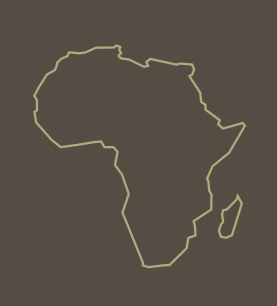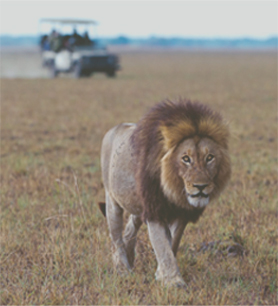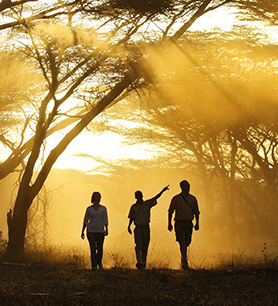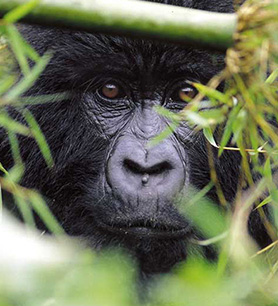We provide you with an essential practical guide, a compass to use before and during the journey, so that you can start your safari in Rwanda with all the necessary and useful tools. It’s a guide that we have compiled over many years by, gathering notes, suggestions and valuable information to better answer your frequently asked questions regarding your journey and stay. We want your safari to be safe, comfortable and carefully planned down to the smallest detail. If you don’t find all the answers to your questions, we are always available to expand on any topic, dissolve any doubts and satisfy any curiosity.

Rwanda in brief
- Capital: Kigali
- Population: around 12 millions
- Extension: 26,340 km²
- Local time: +3 GMT
- Language: Kinyarwanda, French and English
- Currency: Rwandan Franc (RWF)
- International Code: +250

Security
Rwanda is a democratic country, its population is hospitable and the crime rate against tourist is low. Nonetheless, we recommend caution and common sense when travelling, especially in the cities and at night. Never display valuables and always keep them in a safe place. Wildlife is unpredictable and can be dangerous. Most lodges are not fenced in and are located in wild areas where animals roam free. Do not touch the animals, do not feed them, do not approach them on foot if you are not accompanied by a guide, and do not make a noise which could attract or scare the animals.

Health
We advise you to contact your doctor or health service to know about anti-malarial prophylaxis and recommended vaccines, that might vary according to seasons and destinations. Upon arrival in Rwanda, travellers coming from areas where yellow fever is endemic may be requested to exhibit the yellow fever vaccination certificate. Do not forget spray against mosquitoes and high protection sunscreen. We recommend drinking only bottled water.

Insurance
It is mandatory to have a proper travel insurance for the duration of the journey covering medical expenses, lost luggage and travel cancellation. Proof of the insurance coverage must be given before departure from your home country.

Electricity
The electric current in Rwanda is 220/240 V. Some lodges provide electricity through solar panels and generators, sometimes at set times in the morning and after sunset. Others do not have plug sockets in the rooms, but offer mobile phone, camera and other device recharging facilities at reception or in the communal areas. Plug sockets are three square pin (UK), so we advise you to bring along a universal adaptor. We recommend that you bring along a flashlight for use at night.

Photography
We recommend that you ask for permission before taking pictures of people. Do not take pictures of military personnel and public buildings such as airports or military bases. Never use the flash when you take pictures of animals. It is advisable to bring along a camera, with backup memory cards and batteries, and binoculars.

What to wear
We advise you to wear casual and comfortable clothes. Do not forget the temperature difference between day and night, especially in the mountainous areas and during winter. For outdoor activities we advise you to wear multiple layers of clothing, so that you can easily remove them when the temperature rises. We recommend you wear soft colours, especially tops or shirts and long trousers for protection against sun and insects, a fleece or a warm sweater, a windbreaker, comfortable trekking shoes and flip flops. For gorilla and chimpanzee trekking we recommend to pack also a light rain jacket or poncho, a small backpack, leather or gardening cloves and gaiters to walk in the forest. Do not forget cap, sunglasses and a swimsuit during summer. In winter we advice to also pack a scarf, gloves and wool hat. Lodges often offer blankets and hot drinks for outdoor activities during the coldest hours.

Luggage
We recommend that you limit your luggage to two bags per person, hand luggage included. Soft bags must be used as they are easier to transport and to stow. Internal flights can be run by light aircrafts usually setting a weight limit of 15-20 kg per person, hand luggage excluded. Most lodges offer a daily laundry service, usually by hand and not always included in the price of your accommodation.

Passport and visas
A passport valid for at least 6 months with at least two blank pages and the tourist visa are required to enter Rwanda for EU citizens. The visa costs USD 50, it is valid for 30 days and it can be obtained online or upon arrival at the border. Obtaining the entry visa is your responsibility. We advise you to have copies of your personal documents.

Payments
In the lodges accommodation is generally "all inclusive", so it is not necessary to carry much cash in foreign or local currency. Rwandan Franc (RWF) and US Dollar (USD) are the most used currencies for payments. We advise you to have US Dollars, also in small notes, for payments in the lodges, while in rural areas it is preferred to use Rwandan Francs because it is often difficult to change money. In the lodges it is advisable to leave a tip of 10-20 USD per person per day for the guide and 5-10 USD per person per day for the staff. In restaurants it is customary to leave a tip equal to 10% of the bill. Most lodges, shops and restaurants accept major credit cards, but not all petrol stations accept card payments. Lodges often offer a currency exchange service for the main currencies. Nonetheless, we advise that you exchange currency and withdraw cash from ATMs or banks in the main cities.

Telephone and internet
Mobile phone coverage is good in the main cities, but can be erratic or absent in remote areas. Usually communication with the lodges in these areas happens via radio or satellite phone. Some lodges have internet connection, mostly accessible only at the reception or in the communal areas.

Recommended readings
- Gorillas in the mist – Dian Fossey
- Woman in the mists – Farley Mowat
- We wish to inform you that tomorrow we will be killed with our families – Philip Gourevitch
- Shake hands with the devil – Roméo Dallaire
- Machete season – Jean Hatzfeld
- The rebels’ hour – Lieve Joris
- A Sunday at the pool in Kigali – Gil Courtemanche
- Wild Rwanda: where to watch birds, primates and other wildlife – Ken Behrens, Christian Boix, Keith Barnes
- In the kingdom of gorillas: the quest to save Rwanda's mountain gorillas – Bill Weber and Amy Vedder
- Mountain gorillas: biology, conservation and coexistence – Gene Eckhart
- Field guide to the birds of East Africa – Terry Stevenson and John Fanshawe
- The safari companion: a guide to watching African mammals – Richard Estes





